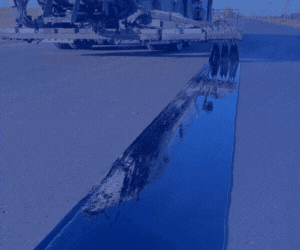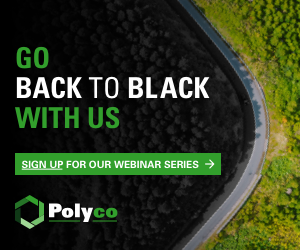Not that long ago I was listening to a talk about a particularly timely issue in the asphalt industry and was really enjoying the presentation of the work when, at the end, the speaker uttered a phrase that is practically guaranteed to kill the feel-good vibes of any industry and user agency representatives listening – “More research is needed.” Ugh. Like my satellite dish during a storm…connection lost.
For the user/industry rep/audience member
If I can presume to speak for the researchers out there, let me share with you what we’re typically thinking when we (researchers) utter such a phrase. Being scientists, we recognize that we haven’t exhausted the range of all reasonable scenarios and so we want to hedge a bit. We think we’re seeing some interesting findings, but acknowledge that the results could potentially change if we were to use different materials or possibly even different tests. Often we don’t have the time or resources (materials, funding) to conduct a more complete, statistically valid study, but we still want to share our initial findings with others in case it sparks some new ideas (and/or funding!) to continue the investigation. As such, we throw out the caveat that “more research is needed.”
For the researcher/presenter
Now, if I can presume to speak for the user agency and industry representatives out there, let me share what we’re typically thinking when we (user agency and industry professionals) hear such a phrase. We’ve got a problem that we think is being addressed by the presentation. There are lots of good findings and it looks promising. We need answers now, so why can’t the presenter give us the solutions based on their work? It sounds like he/she/they just want to spend more time and money studying the problem when we have a real-life issue that we’re facing.
I’ve been on both sides in my career – user agency/industry professional and researcher – and can understand the dilemma faced by both parties. We want answers, but – being engineers, chemists and technologists – recognize that we want good solutions, which takes time and validation. We’re experiencing a connection problem.
So, here are a couple of ideas to help restore that connection:
Don’t be afraid to give it a try (for the users and industry professionals)
Maybe the research idea isn’t fully vetted yet. But you can do some experimentation on selected projects to see how the concept or test works. Involve the research team in your decision. Sure, it will take additional time and effort. But it just might be worth it and can ease the transition to full implementation later.
Consider implementation (for the researchers)
Think about your research in terms of how it can be implemented before writing a paper or presenting your work. For that matter, it’s worth considering before the research is even started. Most big, pooled-fund research projects (like the NCHRP projects) require the research team to provide an implementation plan by the conclusion of the project. If you’re offering a test, consider the quest for the four Rs. To be effectively used by the broadest audience the best tests should be rapid, repeatable, reliable and rudimentary (Okay, “rudimentary” is probably not the best word here. “Simple” would be better, but “quest for the three Rs and one S” doesn’t sound as good.). Even if you can’t complete the quest, the more Rs you can offer the better.
Ask questions (all)
This is a must for both parties whether it is in the Q&A after the presentation or in the cocktail reception later. Get together and find out what information you can share. Maybe the user can provide guidance to the researcher on his/hers/their future work. Maybe the researcher can give the user enough confidence to start trying the key ideas in practice. Remember that the researcher wants to see his/ her/their ideas used and the user agency/ industry professional wants a useful test/ concept that has meaning outside of the confines of a laboratory. A match waiting to happen. Asking questions can help you connect and take the pain out of “more research is needed.”
For more information on AI’s laboratory services please visit the AI website (asphaltinstitute.org) or contact Mike Anderson.
Mike Anderson is the Director of Research and Laboratory Services at the Asphalt Institute.














